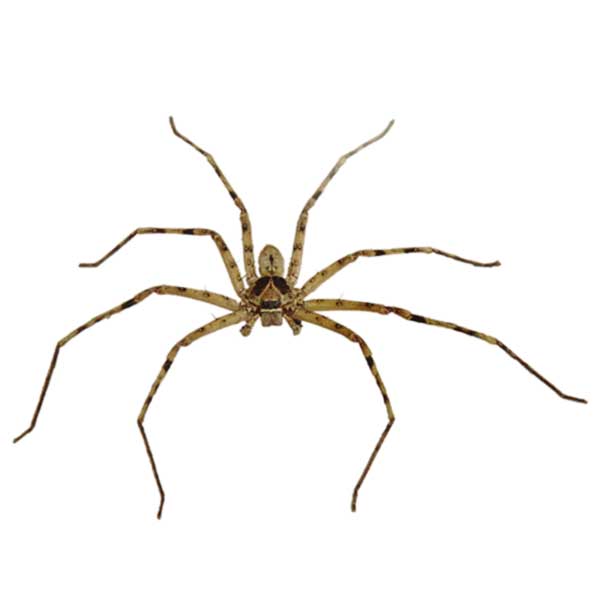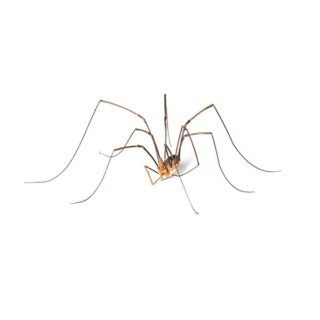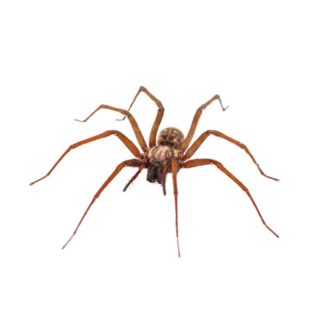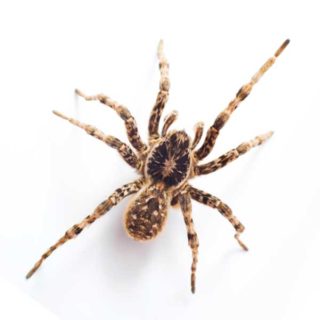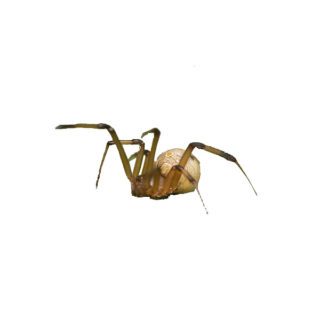Identifying Huntsman Spiders in Florida
Huntsman spiders, belonging to the family Sparassidae, are known for their large size, long legs, and remarkable speed. They can have a leg span of up to 5 inches or more, and are typically brown or grey with a flattened body, which helps them squeeze into narrow spaces. Unlike web-building spiders, huntsmen are active hunters, preying on insects and other small animals.
Huntsman spiders are relatively common around the world, but less common in the United States. Unfortunately, they are becoming more common in Jacksonville FL and throughout Florida due to our warm tropical climate they enjoy. Occasionally mistaken for a large brown recluse spider, the huntsman spider is not venomous. Huntsman spiders run fast, and unlike most spiders, ambush and hunt prey.
Where in Florida Do Huntsman Spiders Live?
Huntsman spiders are found throughout Florida, everywhere from urban and rural areas to the coastal regions. Whether they live indoors or out, huntsman spiders prefer spending the day in hiding, emerging at night to hunt. Trees, woodpiles, buildings, and even cars can easily turn into huntsman spider habitats. Their flattened bodies allow them to fit into cracks and crevices to enter homes, barns, and sheds. Cold-sensitive, these spiders cannot exist outdoors in areas with freezing winter temperatures. They will either migrate indoors or die off.
How Common Are Huntsman Spiders in Florida?
Huntsman spiders are relatively common in Florida. Their prevalence across both urban and rural areas contributes to their role in controlling pest populations by preying on insects. Contact Bug Out professional pest control services if you need help managing their presence.
Are Huntsman Spiders Dangerous?
Huntsman spider bites are painful and may cause side effects such as allergic reactions in sensitive individuals, but they are not highly venomous. These arachnids are large, so they can easily frighten, but they are not generally aggressive. Most huntsman spiders will try to run away from humans rather than bite. Huntsman spiders are considered beneficial as they feed on a variety of insects, such as cockroaches, moths, and on occasion, small reptiles.
Dealing with huntsman spider problems on your property? We can take care of them! Contact your local Florida spider exterminators and schedule an appointment today.
Need help with Huntsman Spider control?
FAQs
Where Do Huntsman Spiders Hide in Florida?
Huntsman spiders, a relatively common Florida spider species, are vulnerable to colder temperatures and tend to hide in warm, dark, and sheltered areas. Common hiding spots include behind furniture, in garages and closets, and within cracks and crevices of homes. They are also frequently found in outdoor sheds, woodpiles, under loose bark, and under rocks.
How Large Do Huntsman Spiders Grow in Florida?
Huntsman spiders are notable for their impressive size, typically reaching a leg span of 3 to 5 inches or more. Their bodies alone can measure about 1 inch in length, making them one of the larger spider species found in Florida.
Are Huntsman Spiders Aggressive in Florida?
Huntsman spiders, commonly found in Florida, are known for their size and speed but not for aggression. While their appearance may be intimidating, these spiders are generally non-aggressive and prefer to flee rather than fight. A huntsman spider bite is rare and generally harmless, causing only mild symptoms.

